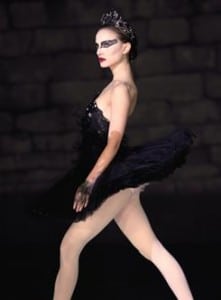OSCAR WATCH: On the big screen, 2010 was the year of the woman
February 23, 2011
 USATODAY.com – Since the Oscars began, only eight best-picture nominees have been directed or co-directed by women. But since the field expanded to 10 films last year, this could be the second time (after The Hurt Locker and An Education) that two are in the race —The Kids Are All Right by Lisa Cholodenko and Winter’s Bone by Debra Granik.
USATODAY.com – Since the Oscars began, only eight best-picture nominees have been directed or co-directed by women. But since the field expanded to 10 films last year, this could be the second time (after The Hurt Locker and An Education) that two are in the race —The Kids Are All Right by Lisa Cholodenko and Winter’s Bone by Debra Granik.
While Winter’s Bone has been more of an art-house success, writer/director Cholodenko’s film about the teen children of a lesbian couple who hunt down their sperm-donor dad has been both a critical and audience favorite. The movie won a Golden Globe for best comedy or musical and Cholodenko is nominated for a Writers Guild award.
Starring Annette Bening, Julianne Moore and Mark Ruffalo, the film was made for a scant $3.5 million and in only 23 days. Still, it’s duking it out with movies with 30 times bigger budgets and millions of dollars more in marketing campaigns. “I made the film with such little resources, so in my perception, it’s like this massive triumph,” says Cholodenko. The movie has gone on to make $21 million domestically.
Most female filmmakers see some shift in how they are perceived by studios, but not a sea change. An indication: No female directors are in the running for the upcoming Directors Guild Awards, which Bigelow won last year, along with best picture.
“In a deeper analysis, especially after the DGA nominations came out, you wonder how much of people’s taste is about a style of filmmaking that might be in vogue right now — quick-cutting, thriller aspects, special effects. The films that are front and center right now are very much genre films,” Cholodenko says. “My film relies heavily on psychological character study.”
Nicole Holofcener, writer/director of the well-reviewed Please Give, about a privileged New York couple, their teen daughter and their neighbors, thinks that the playing field gets leveled with box-office success. “It’s about movies making money,” she says. “Lisa Cholodenko’s made money. It did really well. As long as a director makes a movie that makes money, it doesn’t matter if it’s a man or a woman.”
Holofcener, who is also nominated for a Writers Guild award, finds comfort in the impressive ranks of filmmakers who also went without directing statuettes and awards recognition. “Anytime I’m not included, I think, ‘Look, Scorsese didn’t win an Oscar for all those fantastic films. Life’s not fair. Oh, well.’ “
But overall, being a female director is akin to membership in a special club.
“I’m in really good company,” Holofcener says. “We’re moving up the ranks.”
— Claudia Puig
It’s the little chick flick that could.
Black Swan is a rare hybrid of art-house and grindhouse, an R-rated melodrama that plunges into the twisted psyche of an ambitious prima ballerina driven to the edge by a demanding role.
Faced with a trifecta of Tchaikovsky, tutus and female troubles, most menfolk are likely to take cover at the corner of True Grit and The Fighter.
Not exactly. Turns out Black Swan has been able to attract a wide-ranging flock of ticket buyers that cuts across age, gender and lifestyle. As a result, the $13 million psychological thriller that mixes horror with classical dance has taken in $83.6 million and ranks No. 6 at the box office after two months in release.
Tracking has shown the makeup of moviegoers has greatly expanded since Dec. 3, when the film opened in eight major cities with an impressive $1.4 million. Ticket buyers were mainly young, hip and cosmopolitan. “But the audience began to age up as the accolades poured in. They realized there was something in it for them,” says Nancy Utley, co-president of Fox Searchlight.
By Week 3, when the movie opened across the country in 53 cities, it was clear that smaller towns were responding as well. “We did exit surveys and found the audience was only 55% female,” she says. “It was truly a date film.”
How high can Swan go? Utley says, “It’s a part of the national conversation. If you care about pop culture, you have to go out and see it.” — Wloszczyna
The feminine mystique
With their male directors and testosterone-toting casts, possible best-picture titles such as TheTown and The Fighter should be classified as guy flicks.
Not so fast. The feminine mystique hangs like a powerful perfume over each of the movies that might make the cut as one of 10 candidates in Oscar’s biggest race. In the case of Black Swan, Winter’s Bone and The Kids Are All Right, their influence is more obvious. But women also play a pivotal part in supposedly male-driven films as well.
•The King’s Speech—Colin Firth‘s stammering royal would be adrift if his loving and loyal missus (Helena Bonham Carter) didn’t break protocol to find him the right therapist.
•The Fighter— Bickering brothers Micky and Dicky might be the main event in the boxing bio. But even they would admit that their overbearing mother (Leo) and a Greek chorus of seven sisters, as well as Micky’s barmaid girlfriend (Amy Adams), are really calling the shots.
•Toy Story 3— College-bound Andy, Buzz Lightyear, Woody and Lotso seem to be running the show. But this Pixar delight wouldn’t be half as fun or heartfelt without two little ladies. First, there’s Barbie, who keeps her wits about her during the big escape even while wearing high heels and displays a surprising grasp of civics. And how would the movie end without toddler Bonnie to happily adopt Andy’s playthings?
•127 Hours— This seemingly one-man show with James Franco as a trapped hiker who must sacrifice his arm to save his life would be nothing without flashbacks of the women — his ex-girlfriend, his mother, the girls he met on the trail — who gave him a reason to survive.
•The Town — Not only does Rebecca Hall‘s traumatized bank manager cause Ben Affleck to question his loyalty to his gang of thieves, but the best caper sequence has the crooks posing as nuns.
•True Grit — In the 1969 original, John Wayne‘s one-eyed fat man was endowed with grit. In this version, however, it is clear that Steinfeld’s courageous teen avenger, Mattie Ross, is the one who is true.
— Susan Wloszczyna
‘The Kids Are All Right’
This film has been called Brokeback Mountainfor lesbians, but Brokeback was a period drama that portrayed a male homosexual relationship as conflicted and tragic. Kids is a contemporary comedy-drama that is matter-of-fact about the normality of same-sex marriage and lesbian moms.
“It’s the perfect post-gay film,” says Howard Bragman, a longtime Hollywood publicist. “Gays are just part of the landscape.”
Director Cholodenko, a lesbian mom, set out to relate a family story, not a lesbian story. “We wanted to make a film about a marriage in midlife, at a low point, the things you don’t see in most movies about what families look like behind closed doors,” she tells USA TODAY.
In the process, the movie smashes traditional Hollywood depictions of gay people as dysfunctional, murderous or psychotic, says Dustin Lance Black, the writer/director who won an Oscar for the screenplay of Milk, about the murdered San Francisco gay politician Harvey Milk.
“And unlike in Milk and so many (past) gay movies, the lead characters (in Kids) don’t die,” he says.
Can’t get much more normal than that.


